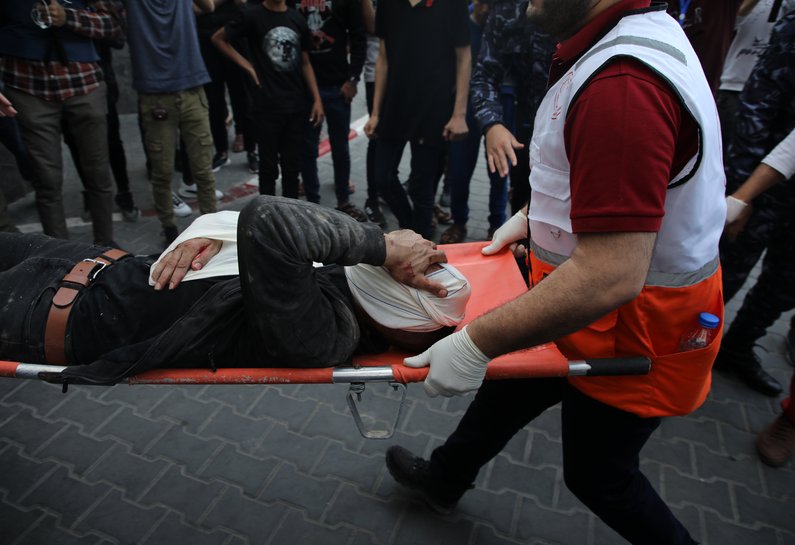Hours left to save Gaza's health system from total collapse: Press Release

Hospitals in Gaza are close to total collapse if fuel does not reach them in the next 48 hours, Medical Aid for Palestinians warned today.
“Harrowing scenes are unfolding in hospitals across Gaza. Doctors have reported that patients who would otherwise live are dying. Hundreds of patients with horrific injuries from Israel's bombardment sit untreated and in agony in corridors. Surgeons operate without anaesthetics and by torchlight,” said Fikr Shalltoot, Medical Aid for Palestinians' Gaza Director.
“World leaders must act now to prevent the total collapse of Gaza's healthcare system. The trickle of aid getting through is nowhere near enough to reverse this humanitarian catastrophe. People will die if fuel does not reach Gaza’s hospitals today.”
No fuel has been allowed into Gaza for more than two weeks due to Israel’s siege. Doctors have warned that patients in critical care will die soon, including 130 newborn babies in neonatal intensive care units, if the power goes out.
Doctors at Al Shifa Hospital told Medical Aid for Palestinians that intensive care patients attached to ventilators are lying on mattresses on the ICU floor. Cancer patients have missed multiple rounds of chemotherapy, and the lives of more than 1,000 kidney dialysis patients are at risk due shortages of medical supplies and fuel in hospitals.
Epidemic fears
Primary care healthcare workers in Gaza also reported a spike in infectious diseases, with 3,150 reported cases in one day, the majority among children.
1.4 million people in Gaza have been displaced since Israel’s bombardment and siege began. Overcrowding in shelters and a lack of clean water is leading to an increase in cases of diarrhoea, food poisoning, scabies, bronchial infections, and chicken pox.
“Children are dying from Israel’s bombardment and siege. The international community must act now to prevent an epidemic taking hold. A ceasefire must urgently be agreed to enable aid to safely reach those in need,” said Fikr Shalltoot.
photo: Injured Palestinians arrive in Shifa hospital (credit: Mohammed Zaanoun)
Related content

